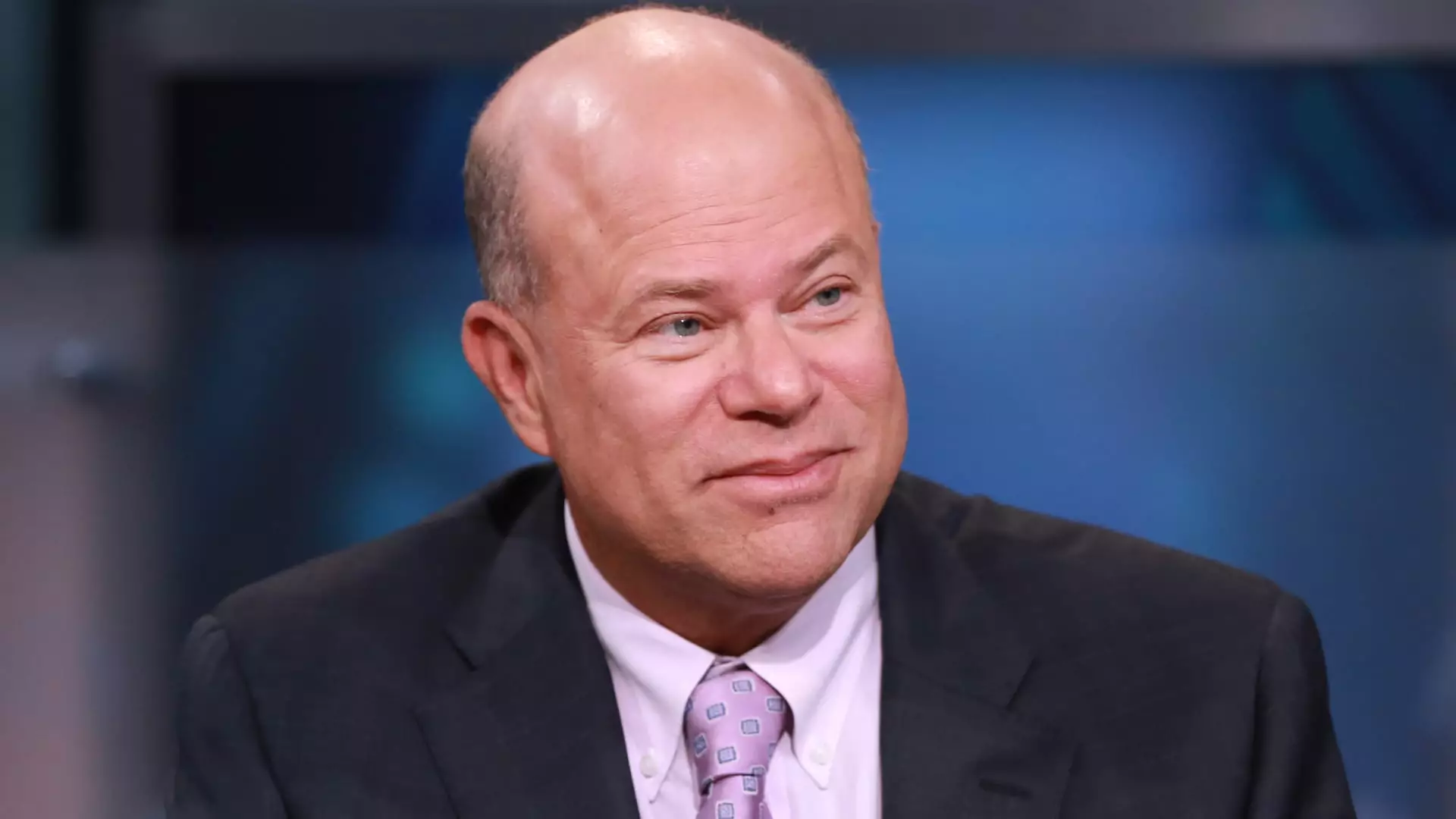David Tepper, the influential founder of Appaloosa Management, provides a compelling analysis of the current landscape regarding the Federal Reserve’s monetary policy and its implications on the financial markets. Through a recent appearance on CNBC’s “Squawk Box,” Tepper emphasized the importance of respecting the Fed’s signals about interest rate adjustments. As he noted, Central Bank Chairman Jerome Powell has laid out a path that includes an initial reduction of half a percentage point in benchmark rates—the first in four years. Tepper encourages investors to consider that the Fed’s credibility is on the line; should it not follow through on projected future cuts, it risks undermining its reputation.
Tepper’s perspective hinges on a clear understanding of the Fed’s communications and decisions. “You just read what these guys are saying,” he stated, implying that thorough analysis of Fed communications could yield insights into future policy. Tepper insinuated that the bank’s leadership possesses a considerable level of conviction, which typically translates into action. He predicts greater cuts—another 25 basis points at least—reflecting an expectation that the Fed will not abandon its commitments easily. However, this setup creates a tension for investors like Tepper, who remain wary of market dynamics sparked by such easing in a relatively stable economic environment.
While the Fed’s recent moves are reminiscent of the monetary policy approaches taken in the late 1990s, the current economic landscape presents a different backdrop. Tepper is cautious; he recalls how aggressive rate cuts back then catalyzed a period of speculative investing that ultimately led to significant market corrections. Despite facing a slowdown in labor market growth and persistent inflation that exceeds the Fed’s target of 2%, the broader economic indicators—such as GDP growth, which the Atlanta Fed estimates to be around 3% for the third quarter—indicate resilience in consumer spending.
The current economic situation begs the question: if the economy is robust enough to sustain such growth, why implement aggressive monetary easing at all? Tepper’s reflections on this phenomenon reveal an underlying uncertainty about the potential consequences of the Fed’s actions. While he acknowledges the short-term benefits of easy monetary policy, he expresses an inner conflict as a “value guy,” wary of the long-term ramifications of policies aimed at stimulating the economy during what seems to be a period of relative strength.
What makes Tepper’s outlook particularly intriguing is his recognition of the tension between easy money policies and market valuations. He acknowledges that while growth remains steady, the easing of interest rates—especially during solid economic conditions—might catalyze erratic market behavior akin to the late 1990s bubble. While he doesn’t plan to bet against U.S. equities, he is not particularly bullish either, stating that “I don’t love the U.S. markets on a value standpoint.” This ambivalence indicates a nuanced understanding of market dynamics that can often lead to irrational exuberance.
Tepper’s cautious stance reflects the broader concerns many investors share regarding the implications of sustained low-interest rates. While ultimately beneficial for stock valuations in the short term, Tepper’s insights also urge caution against potential market distortions created by easy monetary policy. He emphasizes the need for savvy investment strategies that align with the larger macroeconomic framework.
Adding another layer to his analysis, Tepper expressed a strategic shift towards Chinese markets, buoyed by recent rate cuts and supportive governmental measures in response to economic challenges. By looking beyond U.S. equities and focusing on opportunities in Asia and Europe, Tepper contours a diversified investment strategy that seeks to mitigate risks associated with American markets. His approach underscores a broader trend of investors seeking refuge in non-U.S. equities in light of potential overvaluation and economic uncertainties at home.
David Tepper’s commentary on the Federal Reserve and its implications for investors encapsulates a critical snapshot of current market sentiment. As he balances both optimism and caution in navigating market volatility, his insights serve not only as reflections on the Fed’s actions but also as guiding principles for investors willing to traverse an intricate financial landscape. The intersection of policy, market valuation, and global opportunities presents both challenges and prospects in this evolving landscape.

